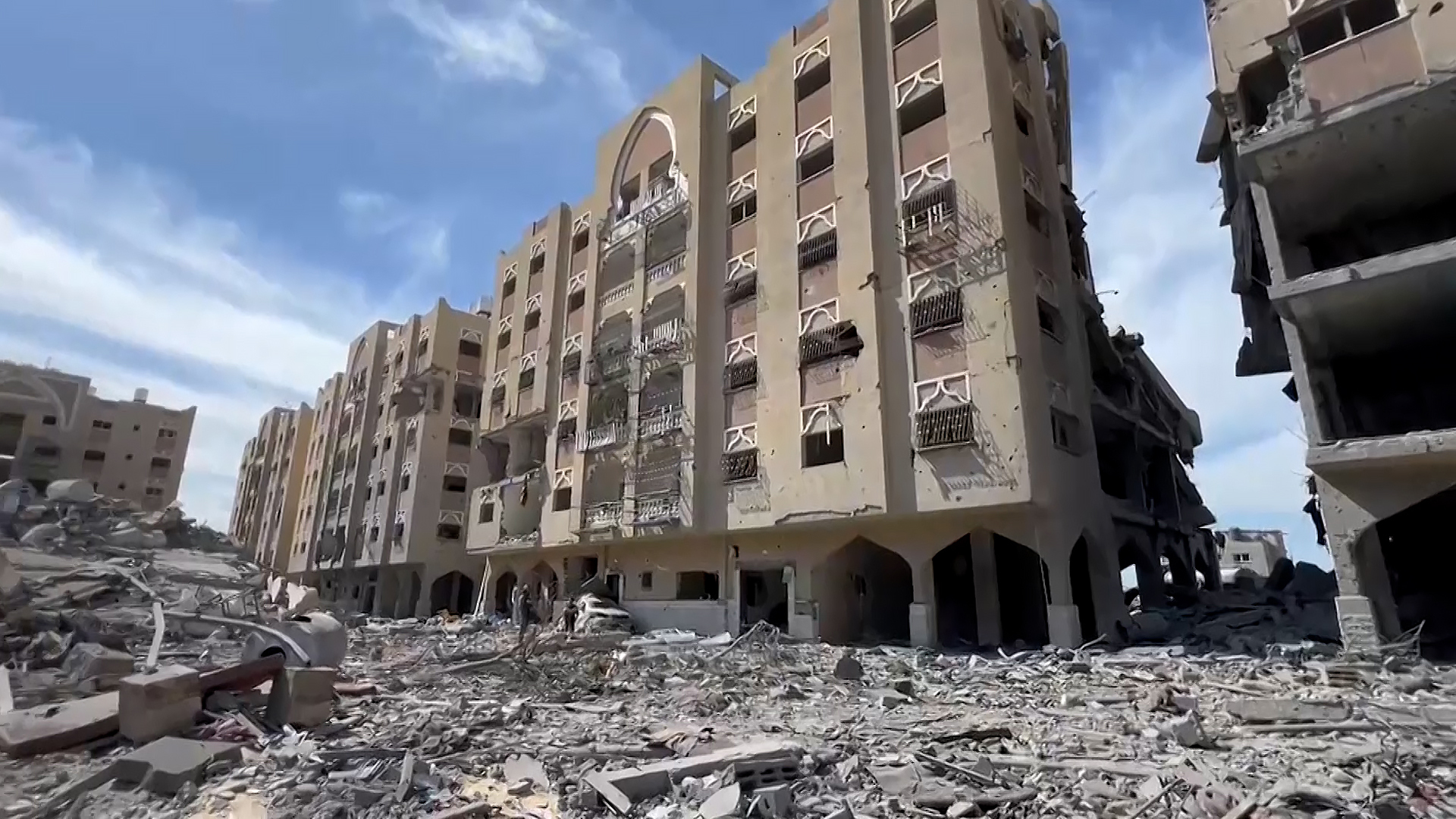play videoplay video
Video duration 01 minutes 05 seconds 01:05
The Islamic Resistance Movement (Hamas) announced that it had presented to the mediators in Egypt and Qatar a comprehensive vision for the negotiations based on four foundations that the movement considers necessary for an agreement and the exchange of prisoners, including stopping the aggression, providing relief, the return of the displaced, and the occupation’s withdrawal from the Gaza Strip.
On the other hand, Israeli Occupation Army Radio said that Israel is studying Hamas’ response to the conditions for completing the exchange deal.
Hamas said in a statement published on Thursday evening that it considers these principles and foundations that it presented necessary for the agreement and the prisoner exchange file, and stressed that it will remain biased towards the rights and concerns of the Palestinian people.
Israeli Channel 12 indicated on Thursday evening that Qatar had delivered Hamas’ response regarding the prisoner exchange deal to Israel.
On the other hand, Israeli Army Radio said that Tel Aviv is studying Hamas’ response to the conditions for completing the exchange deal.
Israeli media reported that the War Council may meet again on Friday to discuss Hamas’ response to the deal.
In this context, Israeli Prime Minister Benjamin Netanyahu's office said in a brief statement that Hamas' demands are "unreasonable and we will provide an update on this matter to the war council."
He pointed out that Hamas's new position on the truce talks is still based on "unfounded demands," as he claimed.
Continuing conversations
For his part, Strategic Communications Coordinator at the US National Security Council, John Kirby, said that talks to reach a ceasefire agreement are still continuing.
Kirby added that the American position has not changed regarding its refusal to launch a major operation in Rafah without taking into account the protection of more than a million people who have taken refuge there.
Kirby also stressed the continuation of work with the allies on how to operate the temporary port in Gaza.
Last week, talks in Cairo mediated by Egypt and Qatar did not lead to any tangible result towards reaching an agreement to exchange prisoners within the framework of a temporary truce in the Gaza Strip.
Netanyahu is facing criticism from the Israeli street and a number of politicians, even those affiliated with the War Council, against the backdrop of the prisoner crisis in Gaza and the failure to find a path to guarantee their return alive, and some of them accuse him of obstructing the deal to release them.
Families of detainees in the Gaza Strip demonstrate almost daily to demand the conclusion of a deal leading to the release of their children.
Israel detains at least 9,100 Palestinians in its prisons, according to official Palestinian sources, while mystery surrounds the number of Israeli prisoners held in Gaza in light of Hamas’ refusal to reveal an accurate number.
While the Israeli media talks about the number of prisoners detained in Gaza ranging between 240 and 253, the Palestinian movement talks about the killing of 70 others as a result of the Israeli bombing.
Hamas released 105 Israeli and other nationalities prisoners during a prisoner exchange deal that took place in November 2023 during a temporary humanitarian truce.
A humanitarian truce prevailed between Hamas and Israel for a week from November 24 until December 1, 2023, during which a ceasefire took place, a prisoner exchange took place, and very limited humanitarian aid was brought into Gaza, with Qatari-Egyptian-American mediation.
Since October 7, 2023, Israel has been waging a devastating war on the Gaza Strip that has left tens of thousands of civilians martyred and wounded, most of them children and women, in addition to an unprecedented humanitarian catastrophe and massive destruction of infrastructure, which led to Tel Aviv being brought before the International Court of Justice on charges of genocide. Collective.
Source: Al Jazeera + agencies

